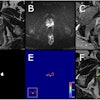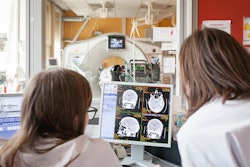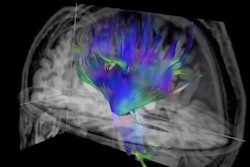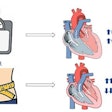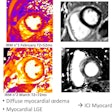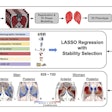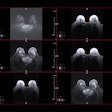The authors of a practical guide designed to help radiologists avoid malpractice claims have received one of 17 magna cum laude awards handed out by the RSNA 2023 judges. Another prizewinner is about imaging of syphilis.
"The majority of radiologists will face litigation in their careers," noted Luke Michael Wojdyla, a second-year radiology resident, and radiologist James Y. Chen, MD, both of UC San Diego Health in California, adding that in a 2021 survey, 71% of radiologists said they had been sued.
"Despite this, dedicated teaching of medicolegal issues is often lacking or incomplete in radiology training programs. Residents are seldom exposed to legal issues that can arise when caring for patients, and attendings themselves may feel unqualified in leading medicolegal discussions," they pointed out.
It's of concern that residents may move to independent practice with an incomplete understanding of the legal environment applicable to their work, the authors stated.
 More than 3,000 posters and exhibits are on display this week in the RSNA Learning Center. Image courtesy of the RSNA.
More than 3,000 posters and exhibits are on display this week in the RSNA Learning Center. Image courtesy of the RSNA.
Their exhibit outlines the legal frameworks relevant to modern radiology practice, and it gives a summary of key court decisions alongside a discussion of malpractice and radiologic errors. Case scenarios address nonroutine communication, reporting missed findings on comparison imaging, addressing technical limitations, and admitting mistakes, among others.
It's important for radiologists to understand the legal basis for common radiologic practices, identify challenging situations with increased medicolegal risk, and implement practical strategies to mitigate risk of litigation, the San Diego team noted.
The group urged everyone to recognize the magnitude of malpractice within radiology, understand how fundamental radiology practices have arisen, learn about the most common causes for malpractice, and identify examples of medicolegal hazards and controversies.
Syphilis: The Reemerging Great Mimicker
Clinical manifestations of syphilis are often inconspicuous, and imaging examinations performed for other purposes may lead to overlooking or misdiagnosing syphilis, according to Kano Shintaro, MD, from the Department of Radiology, Jichi Medical University, Tochigi-ken, Japan, and colleagues. It is crucial for radiologists to understand the imaging spectrums and differential diagnosis of syphilis to ensure an accurate diagnosis and appropriate patient management.
Syphilis -- a sexually transmitted disease caused by the spirochete bacterium Treponema pallidum -- is a multisystemic infection that can affect various organs, and the number of syphilitic patients has rapidly increased worldwide over recent years, they explained.
Radiologists must know more about the imaging spectrums of syphilis to improve their ability to identify potential cases of syphilis, and they need to understand what distinguishes syphilis from other diseases that can mimic it.
Winners from Europe and Canada
RSNA exhibits from two European groups each received a magna cum laude award:
- Gastric cancer CT staging: Radiologic patterns with radiologic-pathologic correlation, by Maria Agostina Giallorenzi, MD, et al, Sapienza University of Rome. "State-of-the-art treatment of locally advanced gastric cancer is multimodal and involves combined surgical and medical therapy. CT has a central role in the staging of gastric cancer, being the method of choice for this purpose; a local and distant staging as accurate as possible is crucial for correct treatment planning, avoiding under- or over-treatment of the patient. To obtain a correct staging, a thorough knowledge of normal and pathologic gastric radiological anatomy and the pathways of tumor spread is crucial," they wrote.
- Autoimmune encephalitis: When your immune system attacks your brain and MRI is your detective, by Fernando Diego Choque Chavez, MD, Hospital Clinic Barcelona, Spain. Their exhibit outlined the pathophysiology and classification of autoimmune encephalitis, described, and illustrated characteristic MRI findings related to autoimmune encephalitis, and discussed the role of neuroradiology in the diagnostic workup of patients.
 For many years, the RSNA poster hall has generated intense discussion and debate. This 2018 exhibit was presented by Tirth Patel, MD, from the University of North Carolina at Chapel Hill. Image courtesy of UNC Radiology.
For many years, the RSNA poster hall has generated intense discussion and debate. This 2018 exhibit was presented by Tirth Patel, MD, from the University of North Carolina at Chapel Hill. Image courtesy of UNC Radiology.
Three Canadian groups also won magna cum laude awards. The first authors of these exhibits were Dyan V Flores, MD, from the Ottawa Hospital; Marin Halut, MD, from Centre Hospitalier de l'Université de Montréal (CHUM); and Adriano Basso Dias, MD, from University of Toronto.





